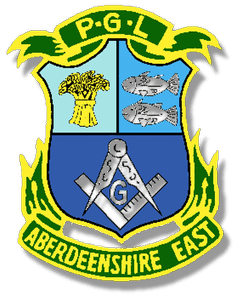
Ten of the Most Frequently Asked Questions about Freemasonry
1. What is Freemasonry?
Answer: Freemasonry is one of the world’s oldest fraternal organisations, built on principles like integrity, friendship, and charity. In Scotland, it has deep historical roots, dating back to the 1500s. It brings together men from all walks of life who want to improve themselves and contribute positively to society.
2. Is Scottish Freemasonry a secret society?
Answer: Not at all. Freemasonry is a society with secrets, not a secret society. Lodges in Scotland are registered, public events are held, and many Freemasons proudly share their membership. The “secrets” mainly involve traditional signs and ceremonies that are symbolic, not clandestine.
3. What do Freemasons actually do?
Answer: Freemasons meet regularly to promote moral and personal development, participate in traditional ceremonies, and engage in charitable activities. In Scotland, Freemasonry contributes millions of pounds to local and national charities, helping communities thrive.
4. Can anyone become a Freemason in Scotland?
Answer: Membership is open to any man over the age of 18 who believes in a Supreme Being and is of good character. Freemasonry is inclusive of all races, religions, and social backgrounds. In recent years, there’s been a focus on openness and encouraging those with genuine interest to ask questions.
5. Are Scottish Freemasons involved in politics or religion?
Answer: No, politics and religion are not discussed within Lodge meetings. Freemasonry in Scotland encourages tolerance and respect for all beliefs and political views, but it remains strictly neutral in both areas to promote harmony among members.
6. Why do Freemasons use symbols and rituals?
Answer: Symbols and rituals are part of Freemasonry’s tradition, used to teach moral lessons and personal responsibility. In Scotland, many of these symbols reflect the stonemason heritage from which Freemasonry evolved, tying members to a rich cultural history.
7. Do Freemasons help the community?
Answer: Absolutely. Scottish Freemasons are deeply committed to charity and community service. From supporting hospitals and hospices to educational scholarships and local initiatives, their charitable work often happens quietly but makes a real difference.
8. Is Freemasonry a religion or cult?
Answer: No, Freemasonry is not a religion or cult. While belief in a Supreme Being is a requirement, it is not tied to any specific faith. In fact, members are encouraged to be active in their own religious traditions, whatever they may be.
9. What makes Scottish Freemasonry unique?
Answer: Scotland is home to the world’s oldest documented Masonic lodge – Lodge Mother Kilwinning – and has its own governing body: The Grand Lodge of Scotland. Scottish Freemasonry places a strong emphasis on tradition, independence of lodges, and a deep respect for heritage.
10. Why is Freemasonry still relevant today?
Answer: Freemasonry offers timeless values like honesty, respect, and service to others. In today’s fast-paced world, it provides a rare space for reflection, personal growth, and meaningful connections. Its focus on improving oneself and helping others is as relevant now as ever.

Contact the Provincial Grand Secretary
Alexander Burgess
4 Broomhill
Fraserburgh
AB43 9TU
Tel: 07547 624835
email:[email protected]